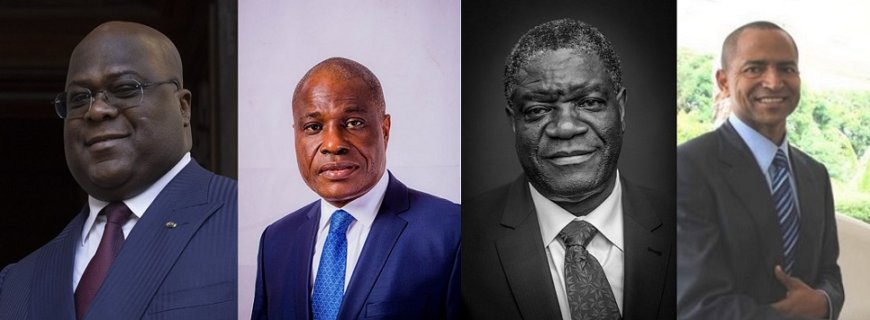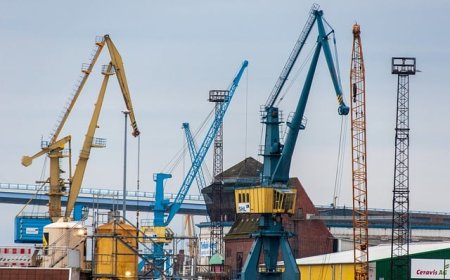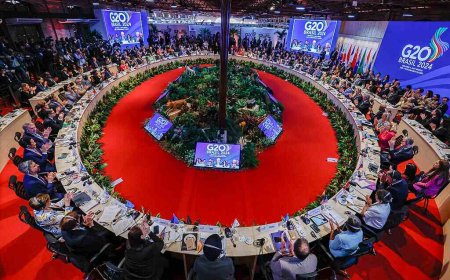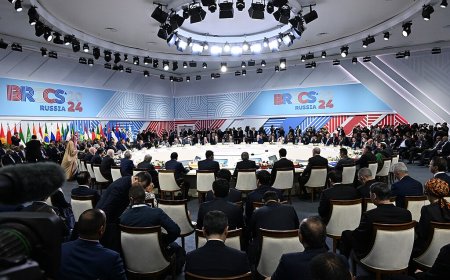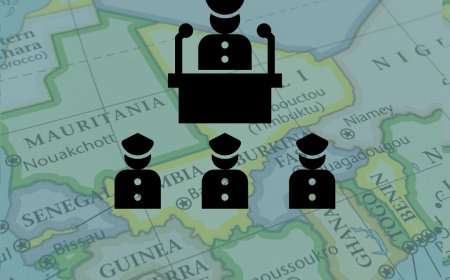Summary
- Presidential, legislative, and provincial elections will take place in the DRC on December 20, 2023. Incumbent President Félix Tshisekedi seeks re-election against major contenders Moïse Katumbi, Martin Fayulu, and Denis Mukenge, as well as 18 additional candidates.
- Focal issues in the election include economic challenges, natural resource governance, rooting out corruption, infrastructure gaps, and on-going regional conflicts.
- Despite fears of unfair elections and corruption, citizen engagement and expectations are reflected by an all-time high in voter registration.
- A wider political crisis can occur if losing candidates and their backers do not accept the election results. A contested result in 2023 would undoubtedly lead to a political crisis, one even more severe than that of 2018.
Background
On 20 December 2023, voters in the Democratic Republic of Congo (DRC) will go to the polls to elect the president, legislative, and provincial representatives. President Félix Tshisekedi is seeking a second term against 22 contenders, including two women, Joëlle Bile and Marie-Josée Ikofu. This is the fourth presidential election and the fourth electoral cycle after the democratic transition of 2003-2006.
Elections in the DRC have a long history of electoral misconduct, following decades of autocratic rule under Mobutu Sese Seko and conflicts since late 1996. Allegations of electoral fraud and irregularities also marred subsequent democratic elections between 1997 and 2018. The 2023 election will occur against a backdrop of institutionalised corruption, lack of infrastructure, unending political insecurity in the east, food insecurity, and poor use of the country’s fabulous natural wealth. The stakes are thus high, given decades of war, violence, and poverty that have claimed millions of lives. As a result, the political landscape is one of both fear and hope.
Although citizens fear the election might not be free and fair, they are looking forward to it, as reflected by the highest voter registration ever.1 What’s more, they have reason to hope this electoral cycle might differ since the incumbent president and the electoral institutions know they will be under closer scrutiny than in 2018.2 The 2023 presidential election itself also seems quite different from the three previous cycles. This is for three reasons: First, most Congolese want to vote against a quasi-institutionalised system of rigged elections that tends to disenfranchise them. This explains the highest voter registration ever. Second, the National Independent Electoral Commission (in French, denoted by the acronym CENI) has promised to hold municipal elections that it has postponed since 2006. Finally, the electoral process will include, for the first time, Congolese citizens living in Belgium, Canada, France, South Africa, and the USA.
A wider political crisis can occur if losing candidates and their backers do not accept the election results.3 A contested result in 2023 would, therefore, undoubtedly lead to a political crisis, one even more severe than that of 2018. Indeed, the results of the last two presidential elections were marred by allegations of electoral misconduct, which contributed to a crisis of legitimacy and governance and a feeling among voters that their voices did not count. For these reasons, the international community will closely observe the 2023 election. This is especially crucial since, regionally, rival neighbours might not be able to step in to mediate or otherwise find a solution.4 In addition, regional players do not usually coordinate their foreign policies. For example, Rwanda is alleged to have a long history of backing Congo’s rebel groups as a means to expand their influence in the country.5
Main Contenders, Campaign Messages, and the Projected Winner
Twenty-two candidates, including the incumbent president, are running for President. In reality, however, it is going to be a race between four contestants. First is President Tshisekedi, who is running on his previous achievements, such as free education and maternity care. If re-elected, he promises to consolidate these achievements and introduce universal healthcare.
All of Tshisekedi’s contenders criticise him for failing to stem the plunder of the DRC’s abundant natural resources and to bring peace to the country’s war-torn eastern provinces. For example, Katumbi, the leading contender and former governor of Katanga, promises to restore peace, improve social development, and grow the national economy.6 The second major contender is Martin Fayulu. Having already run against Tshisekedi in 2018, Fayulu promises to facilitate a national consensus, institute democratic reform, uproot patronage, and attract new investments. However, his 2018 Lamuka (wake-up) coalition was weakened by the departure of key members who joined the Tshisekedi government. Among the newcomers are Denis Mukenge and former Prime Minister of the 2008-2012 government Adolphe Muzito. Dr. Mukenge won the Nobel Peace Prize in 2018 for his nearly 20-year work concerning sexual violence against women in eastern Congo. Peace and security are his two top priorities. Muzito promises to liberate the Congolese people from poverty, facilitate bank loans, build roads, restore peace, and increase the salaries of public servants and soldiers.
Despite their differences, in late October 2023 most candidates from the opposition emphasised the urgency of a common front as the best strategy to defeat what they called Tshisekedi’s gruesome plan to remain in power. This move is a significant step in the right direction since each presidential contender is highly associated with a given province and is thus constrained to ally with political leaders from other provinces to gain national visibility and influence. Uniting as a common front is therefore likely to help expand the regional base of the opposition. As a result, some candidates, including Matata Ponyo, Sethi Kikuno, Franck Diongo, and Delly Sesanga, have withdrawn from the race and endorsed Katumbi.
Nevertheless, the electoral process, based on a plurality system, will likely favour President Tshisekedi. Several observers also contend that Tshisekedi might win the election given his relationship with the president of the CENI, Denis Kadima, who is from the same Luba ethnic group as the president.7 Although opinion polling is rare in the DRC due to poor roads and lack of electricity, a survey conducted in the second quarter of 2023 by GeoPoll Socio-Political Barometer8 found that voters expressed significant disapproval with the governance under Tshisekedi, assigning him a poor satisfaction rating of 49.7%. The survey also suggested that Tshisekedi would secure a second term thanks partly to perceived improvements, such as his free education initiative and a divided opposition.
Tshisekedi's success is by no means guaranteed, however. An early 2022 poll, also by GeoPoll Socio-Political Barometer, found unemployment and insecurity to be the most cited concerns in the country. They were closely followed by the country’s lack of roads and hyperinflation. Given these issues, specifically unemployment and insecurity, Tshisekedi is less likely to win the 2023 election, that is unless the CENI orchestrates fraud. This prediction is based on the administrative division of the DRC, which includes 14 eastern provinces and 12 western provinces, including Kinshasa. Most eastern provinces, except for Tshisekedi’s native Kasai Oriental, are unlikely to vote overwhelmingly for him since he has been incapable of bringing peace to the area and building the economy. Meanwhile, Katumbi started his campaign in the eastern provinces, including the two regions most affected by insecurity, North-Kivu and Ituri, while Tshisekedi has remained in the western provinces. Moreover, the issue of a divided opposition is slowly solving itself as some candidates have withdrawn from the presidential race and endorsed Katumbi, as mentioned above. These developments do not bode well for Tshisekedi.
Managing the Electoral Process
The transparency of the electoral process has been called into question by the Catholic Church, which accuses the CENI of a failure to engage with civil society observer missions in the registration of voters.9 The church also adds that the CENI has not published the list of voters’ precincts by provinces as the law requires.
The DRC has three independent organs that administer elections. First is the CENI, responsible for conducting all elections since 2006. In its attempt to maintain the status quo, its activities have been marred by electoral misconduct.10 Like Kabila before him, Tshisekedi has packed it with his party loyalists and modified the allocation of the seats within the organ to his favour.11 Under his directives, the CENI failed to increase transparency during the voters’ registration process.12 The CENI also rejected the proposal from the opposition and the CENCO for an independent audit of the voter registry.13 Moreover, the new identification cards seem to be substandard.14 Many voters have complained that the picture on their cards has faded and is no longer clear. According to CENCO, the ink used to print the cards was of poor quality.15 Since the CENI has refused to issue new cards, it is unlikely that these voters will be allowed to vote. In late October 2023, the CENCO also reported cases of stolen and broken voting machines.
The second body is the Constitutional Court. It usually rules on issues related to electoral charges and contentions. The court has nine members, including three appointed by the president, three chosen by theparliament, and three designated by the High Council of the Judiciary. Since the president constitutionally heads this council, in October 2020, Tshisekedi was able to appoint three judges in the Constitutional Court to increase his majority. They are likely to rule in his favour in the case of disputes over electoral results. What’s more, a common voter perception in the DRC is that the courts always rule in favour of the government, although the constitution guarantees the independence of the judiciary branch.16 A recent example is the seven-year sentencing of presidential candidate Jean-Marc Kabund in September 2023 on the charge of insulting the president.17
The state of insecurity and political instability is perhaps the most critical challenge facing the 2023 presidential election. First, since May 2023, President Tshisekedi has used security forces to crack down on opposition candidates18 and their supporters. Between May and October 2023, the government prevented some major presidential contenders and their supporters from holding rallies.19 The government has also authorised the security forces to use tear gas to disperse peaceful rallies.20 Second, insecurity in the eastern provinces of North-Kivu and Ituri gave President Tshisekedi legitimate grounds in 2023 to declare a state of emergency in these two eastern provinces. This declaration limited the number of registered votes in the two most populated Congolese provinces likely to vote against him, since he never fulfilled his 2018 campaign promise of restoring security there21 - though they have borne the brunt of proxy wars across eastern Congo for almost 29 years. This declaration also resulted in major protests, and police security forces’ attacks on citizens left many people killed and thousands injured.
Additionally, millions of voters are likely to be disenfranchised in North-Kivu and Ituri because the two provinces remain the bastion of many armed groups, both local and foreign. Among local militias, some groups pretend to protect a particular ethnic group. In contrast, others contend to defend their ancestral lands from annexation by Rwanda. Further still, many militias are racketeers or bandits. North-Kivu and Ituri also host foreign armed groups believed to be from Rwanda and Uganda. More specifically, the Movement of 23 (M23) that started a rebellion against the government in April 2012 has remained the most destabilising force in North-Kivu, killing innocent people, raping women of all ages, terrorising farmers, attacking convoys of merchandise, and charging citizens exorbitant taxes.22 The United Nations launched a joint military offensive against the group in late September 2013, and the national army defeated it in early October. However, M23 reappeared in November 2021 and occupied the territories of Masisi and Rutshuru in North-Kivu. It has created a parallel administration that has completely limited the work of the CENI. The government of Rwanda provides substantial support to this rebel movement to maintain control over mineral-rich areas.23
Voters’ Perceptions and Expectations
The electoral campaign started in October 2023. After the serious credibility challenges of the 2011 and 2018 elections24citizens have little trust that elections will be free and fair. They also fear that this electoral cycle might lead to the re-election of Tshisekedi, whose corrupt regime resembles that of Kabila.25 For instance, the old scheme of embezzlement that consists of paying fictitious state employees has continued under Tshisekedi's leadership.26 His administration has also followed its predecessor’s habits of issuing illegal licences for logging the rainforest.27 Meanwhile, embezzlement of the public treasury has remained the same, the government has failed to prosecute alleged wrongdoers,28 and President Tshisekedi has been unable to deliver social and economic development, such as reducing poverty and building roads.
Today, this amounts to the DRC being one of the poorest countries in the world while sitting on unimaginable natural wealth. The country’s decline is striking. In 2019, the GDP per capita of the country in purchasing power parity was barely $1,000 (in 2017-dollar prices) compared to $3,036 in 1960 when it became independent.29 The country was almost self-sufficient in food in the 1950s, and inflation averaged 1.18% annually.30 Yet, in 2023, it imports more food than ever before. In 1960, the DRC had more than 145,000 km of roads and some 15,000 km of navigable waterways.31 In 2022, the country had no more than 24,000 km of decent roads and only 700 km of navigable waterways.32 This poor infrastructure means that economic agents have limited contact, and the production of goods consequently suffers. The DRC also had more than 5,000 well-equipped health facilities in 1960.33 In 2022, this number stands at approximately 85. Congolese voters expect the Catholic Church’s assessment of the upcoming presidential election will be taken seriously and, in the unlikely event of an election dispute, form the basis for a vote recount request.
Geopolitical Implications
Considering the potential of the country’s natural resources, the outcome of the 2023 presidential election will have major regional and international implications. At the regional level, the Rwandan government is accused of helping the Congolese rebels since it started the war against Laurent Kabila in August 1998. The DRC has also accused Rwanda of smuggling its minerals, which is estimated to cost US$1bn per annum.34 The Rwandan government will thus prefer a chaotic election or a weak elected president, like the last two presidents, so that it can illegally continue to plunder the resources in eastern Congo.
In the west, Angola is also following the election with great interest. Its outcome will affect the relationship between the two countries because Angola has continued to illegally extract crude oil from Congo’s waters.35 Since Laurent Kabila, Congolese presidents have consciously avoided making effective claims to Congo’s waters because of concerns about regime security and survival36. However, in mid-July 2023, Angola and the DRC signed a bilateral agreement to authorise the oil Block Ring 14, which starts from the DRC’s shores and will be exploited by both countries.37 A newly elected president would probably revisit this issue and create a political battle or enter into new negotiations with Angola.
At the international level, Congo’s strategic minerals are of major interest to the West and China. Washington and Beijing are the two major competitors in this domain. Of particular interest is cobalt. China’s advancement in the region is the result of mining deals, which the minority opposition in the parliament and the IMF have described as predatory.38 A free and fair election that leads to a change in government will likely build the path towards good governance that can attract Western investors to the DRC.
The AU, the SADC, and the Carter Center have promised to send observer missions to the DRC to ensure the integrity of the presidential election. Historically, their presence has made no difference, as illustrated by their reluctance to reject electoral misconduct in 2011 and 2018. Hopefully, their presence will make a difference this time.
Endnotes
- “Congo registers around 43.9 million voters for December general election” Reuters 22 May 2023.(https://www.reuters.com/world/africa/congo-registers-around-439-million-voters-december-general-election-2023-05-22/). Retrieved 6 December 2023.
- “Is the DRC heading for another chaotic election,” ISSAfrica 3 November 2023. (https://issafrica.org/iss-today/is-drc-heading-for-another-chaotic-election). Retrieved 30 November 2023.
- “Elections en RD Congo: limiter les risques de violence,” International Crisis Group 30 October 2023. (https://www.crisisgroup.org/africa/great-lakes/democratic-republic-congo/312-elections-en-rd-congo-limiter-les -risques-de-violence). Retrieved 6 November 2023.
- “Elections en RD Congo: limiter les risques de violence”, op. cit.
- “DR Congo: Killings, Rapes by Rwanda-Backed M23” Human Rights Watch 13 June 2023. (https://www.hrw.org/news/2023/06/13/dr-congo-killings-rapes-rwanda-backed-m23-rebels). Retrieved 3 August 2023.
- “RDC-Campagne électorale: Félix Tshisekedi et Moïse Katumbi en tête de liste,” Radio Okapi 26 November 2023 (https://www.radiookapi.net/2023/11/27/actualite/politique/rdc-campagne-electorale-felix-tshisekedi-et-moise-katumbi-en-tete-de). Retrieved 4 December 2023.
- Jean-Jacques Wondo Omanyundu, “DRC: from nepotic locking of the CENI for the benefit of Tshisekedi to chaos,” African Desk for Strategic Analysis 21 January 2022. (https://afridesk.org/en/drc-from-nepotic-locking-of-the-ceni-for-the-benefit-of-tshisekedi-to-chaos-jj-wondo/). Retrieved 5 November 2023.
- GeoPoll Socio-Political Barometer. (https://www.geopoll.com/blog/drc-socio-political-barometer-q2-2023/). Retrieved 4 December 2023.
- “Congo’s Catholic Church questions government’s election preparation,” Reuters 23 June 2023. (https://www.reuters.com/world/africa/congos-catholic-church-questions-governments-election-preparations-2023-06-23/). Retrieved 1 December 2023.
- USA, US Department of the Treasury, “Treasury Sanctions Congolese Officials Responsible for Undermining DRC Elections.” (https://home.treasury.gov/news/press-releases/sm633). Retrieved 7 December 2023.
- Jean-Jacques Wondo Omanyundu, op. cit.
- idem
- idem
- “Kinshasa: démantèlement d’un réseau de présumés fabricants de pseudo cartes d’électeur,” Radio Okapi 28 November 2023 (https://www.radiookapi.net/2023/11/28/actualite/societe/kinshasa-demantelement-dun-reseau-de-presumes-fabricants-de-pseudo). Retrieved 7 December 2023.
- idem
- “Strengthening the Rule of Law and Protection of Civilians in the Democratic Republic of Congo,” UN Chronicle vol. 55, No. 2 (August 2023). Retrieved 3 December 2023. (https://www.un.org/en/chronicle/article/strengthening-rule-law-and-protection-civilians-democratic-republic-congo). Retrieved 4 December 2023.
- “DRC: Jean-Marc Kabund Sentenced to 7 years in Prison,” Africanews 13 September 2023. (https://www.africanews.com/2023/09/13/drc-jean-marc-kabund-sentenced-to-7-years-in-prison//#:~:text=The%20former%20leader%20of%20the,in%20prison%2C%20his%20defense%20announced). Retrieved 4 December 2023.
- Mohammed Yusuf, “DR Congo: Crackdown on Opposition Ahead of Elections,” Human Right Watch 22 August 2023. (https://www.hrw.org/news/2023/08/22/dr-congo-crackdown-opposition-ahead-elections). Retrieved 7 December 2023.
- idem
- idem
- “East DR Congo: President’s Elusive Bid for Peace,” Barron’s 6 December 2023. (https://www.barrons.com/news/east-dr-congo-president-s-elusive-bid-for-peace-db8e6b1a). Retrieved 7 December 2023.
- “M23 manoeuvres to destabilise Kinshasa,” AfricaIntelligence. The Continent’s daily 1 March 2023. (https://www.africaintelligence.com/central-africa/2023/03/01/m23-manoeuvres-to-destabilise-kinshasa,109919158-eve). Retrieved 15 November 2023.
- “Rwanda and the DRC at risk of war as new M23 rebellion emerges: an explainer.” Reliefweb 29 June 2022. (https://reliefweb.int/report/democratic-republic-congo/rwanda-and-drc-risk-war-new-m23-rebellion-emerges-explainer). Retrieved 18 December 2023.
- Jean-Jacques Wondo Omanyundu, op. cit.
- Claude Kabemba, “Political marriage of convenience bodes ill for prosperity in DRC,” Daily Maverick 29 June 2020. (https://www.dailymaverick.co.za/article/2020-06-29-political-marriage-of-convenience-bodes-ill-for-prosperity-in-drc/). Retrieved 30 July 2020.
- Stephen R. Weissman, “Washington Must Not Allow Another Stolen Election in Congo,” Foreign Policy 18 September 2023. (https://foreignpolicy.com/2023/09/18/congo-election-biden-fayulu-tshisekedi-democracy-corruption/). Retrieved 4 December 2023.
- Lawon Olalekan, “DRC logging contracts suspended as audit uncovers serious violations,” Mongabay Nature & Inspiration from Nature’s Frontline 6 March 2022. (https://news.mongabay.com/2022/05/drc-logging-contracts-suspended-as-audit-uncovers-serious-violations/). Retrieved 27 June 2022.
- “Top Tshisekedi Adviser Resigns Amid Congo Corruption Scandal,” Bloomberg 19 September 2022. (https://www.bloomberg.com/news/articles/2022-09-19/top-tshisekedi-adviser-resigns-amid-congo-corruption-scandal). Retrieved 4 December 2023.
- “Penn Table.” University of Groningen (https://www.rug.nl/ggdc/productivity/pwt/?lang=en)
- Emizet F. Kisangani, The Belgian Congo as a Developmental State: Revisiting Colonialism (London: Routledge 2023, p. 228).
- idem
- idem
- idem p. 243
- Tom Wilson and Andres Schipani, “DRC says Rwandan mineral smuggling cost it almost $1bn a year,” Financial Times 21 March 2023. (https://www.ft.com/content/ecf89818-949b-4de7-9e8a-89f119c23a69). Retrieved 30 March 2023.
- Patrick Edmond, Kristof Titeca & Erik Kennes, 2019, "The DRC–Angola Offshore Oil Dispute: How Regime (In)Security Outweighs Sovereign Claims,"Journal of Southern African Studies vol. 45, No. 5, pp. 841-857.
- idem
- “Angola, DRC Sign Agreement for Developing Block 14 in Kinshasa,” Egypt Oil & Gas 13 July 2023. (https://egyptoil-gas.com/news/angola-drc-sign-agreement-for-developing-block-14-in-kinshasa/). Retrieved 4 December 2023.
- Aaron Ross and Helen Reid, “Congo’s $6 bln China mining deals ‘unconscionable’, says a draft report,” Reuters 8 October 2021. (https://www.reuters.com/business/congos-6-bln-china-mining-deal-unconscionable-says-draft-report-2021-10-08/). Retrieved 10 October 2021.
About the Author
Dr. Emizet F. Kisangani
Emizet F. Kisangani is professor of Political Science and the Graduate Program in Security Studies at Kansas State University in the USA. He has published eight books and many articles and book chapters on the DRC. His latest book published in 2023 by Routledge is titled The Belgian Congo as a Developmental State: Revisiting Colonialism.
